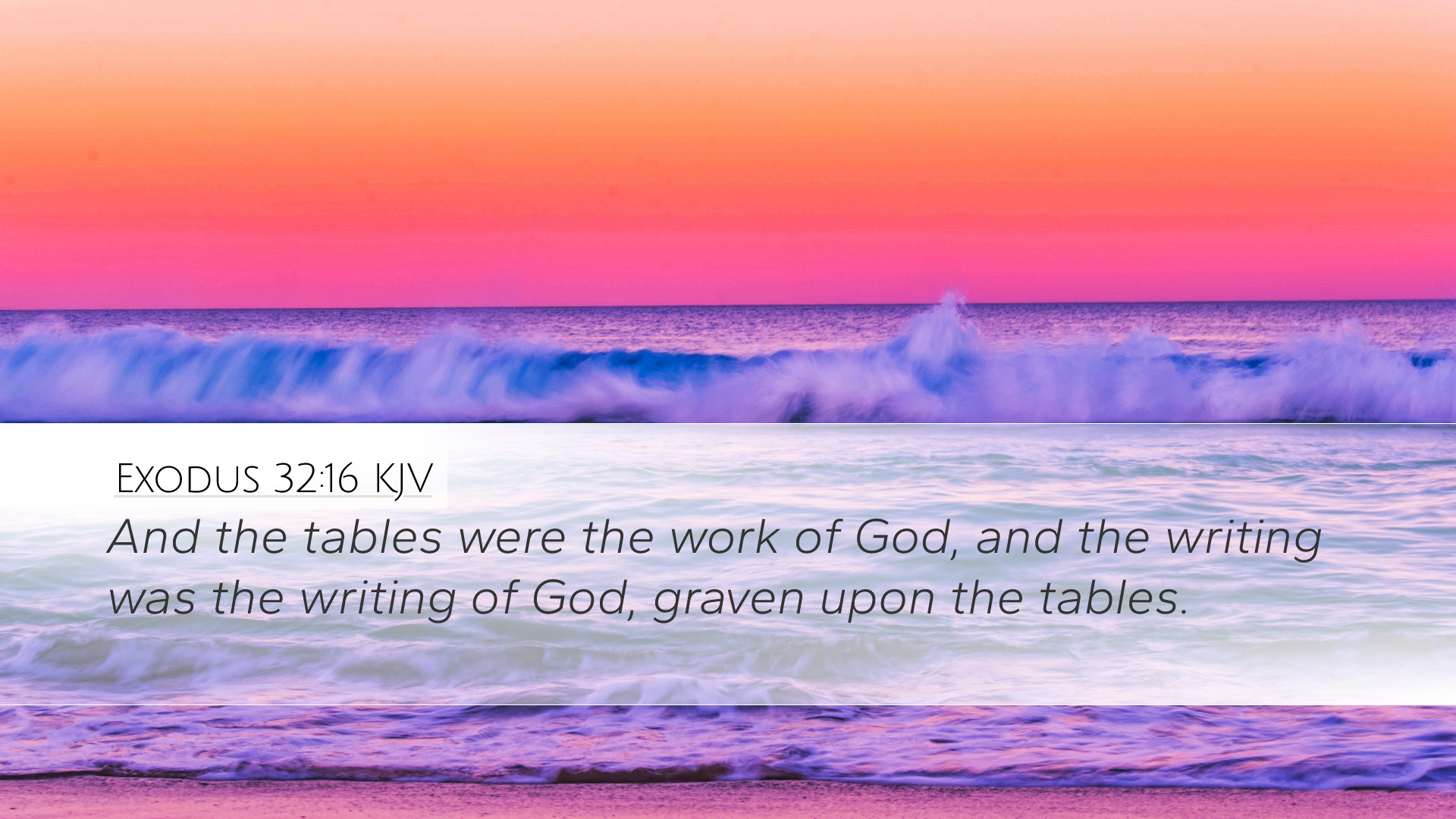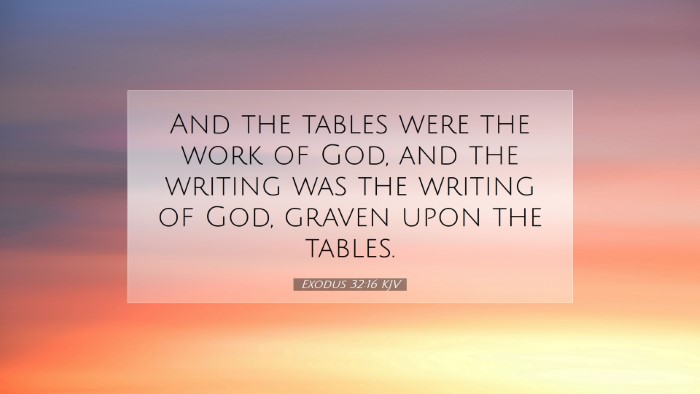Exodus 32:16 - Bible Commentary
Bible Verse: "And the tables were the work of God, and the writing was the writing of God, graven upon the tables."
Introduction
The verse represents a significant moment in the biblical narrative. It pertains to the divine authorship of the laws given to Israel and underscores their sacred nature. The context of this verse is situated during the Israelites' idolatry with the golden calf, which serves as a backdrop to the covenant relationship established through the commandments.
Historical Context
The setting of Exodus 32 occurs shortly after the Israelites received the law at Sinai. Moses had been on the mountain receiving instructions from God, and during his absence, the people succumbed to sin by creating and worshipping a golden calf. This act of rebellion displays their fragility and the challenges Moses faced as their leader.
Commentary Insights
This commentary synthesizes insights from esteemed commentators:
Matthew Henry
Henry emphasizes the divine nature of the tablets, stating that they were not merely stone but were "the work of God." He highlights that the commandments represent a covenant, and their engraving by God signifies that they are immutable and authoritative. The emphasis on God's hand in the writing also suggests that these laws are not subject to human interpretation or alteration. This divine creativity serves as a reminder of the seriousness of covenant fidelity among the people of Israel.
Albert Barnes
Barnes notes that the phrase "graven upon the tables" conveys the permanence and clarity of God's law. He remarks that it is not merely an inscription but is intrinsic to the tablets, illustrating the depth of the relationship between God and Israel. According to Barnes, this underscores the unique nature of the law as a moral absolute rather than a series of societal regulations. Understanding the weight of these commandments can guide believers today in how they approach divine authority and morality.
Adam Clarke
Clarke provides a thorough analysis of the spiritual implications of this inscription. He points out that the divine authorship indicates that human intellect and reason fall short of fully understanding God’s requirements. Furthermore, Clarke suggests that the tablets symbolize more than just law; they reflect God’s desire for a relationship with His people. The engraved writing invites all generations to comprehend the heart of God’s communication and instruction, which transcends mere legalism.
Theological Implications
Each of these commentators brings forward critical theological insights relevant to pastors, students, theologians, and scholars:
- The Sovereignty of God: The narrative affirms God's active role in shaping moral standards for humanity. The divine authorship heightens the importance and responsibility that believers hold in adhering to His laws.
- The Nature of Revelation: The fact that the commandments are engraved suggests that God's revelations are intended to be permanent and foundational. This dynamic shapes how we understand the Old and New Testament relationships and their respective laws.
- Human Accountability: The Israelites' immediate turn to idolatry speaks volumes about human nature. The verse illustrates the constant struggle between divine instruction and human behavior, offering a lens for evaluating contemporary adherence to God’s word.
Practical Applications
For modern believers, Exodus 32:16 calls for reflection and action:
- Commitment to God's Word: The permanence of God's commandments urges believers to study, meditate on, and live by His word actively.
- Recognition of Idolatry: Just as the Israelites struggled with idolatry, believers must examine their lives for modern-day idols that distract from true worship of God.
- Encouragement of Spiritual Leadership: Leaders in the faith community should prioritize teaching the profound truths of scripture, helping followers recognize the importance of God’s laws in fulfilling His covenant.
Conclusion
Exodus 32:16 serves as a crucial reminder for believers regarding the sacred nature of God’s commandments and His expectations for covenant fidelity. As historical and theological insights converge on this passage, the collective wisdom of past commentators reveals enduring truths. This verse beckons a deeper understanding of our relationship with God and the spiritual responsibilities that arise from His divine guidance.


